22 Foods That Could Harm Your Dog—Some Are in Your Kitchen Right Now
We all know that look—your dog staring up at you with those big, hopeful eyes while you eat. It’s hard to resist sharing a bite, right? But before you hand over a snack, you should know that dogs have different metabolisms than humans. Some foods that are healthy for us can be harmful—or even deadly—for them.
Dogs also don’t always know when to stop eating, so they might eat something bad for them. Today, we’re breaking down 22 foods you should keep away from your dog to keep them safe and happy.
1. Avocados
Avocados have a toxin called persin. It’s fine for humans but dangerous for dogs. If your dog overeats, it can cause fluid to build up around their lungs and chest, making it hard for them to breathe.
Even if your dog doesn’t like avocados, be careful they don’t chew on a pit that falls to the floor. The pit can be especially toxic—and a choking hazard, too.
2. Garlic
Garlic can be really bad for dogs because it has thiosulfate. Their bodies can’t process it, and it damages their red blood cells, leading to anemia.
You might not feed your dog garlic directly, but garlic hides in many foods we eat, like sauces or marinades. Always think twice before sharing leftovers with your furry friend.
3. Macadamia Nuts
Macadamia nuts are healthy for humans but not for dogs. They can cause an upset stomach, vomiting, weakness, and even temporary paralysis.
Because dogs love to sniff and nibble on anything they find, it’s safest to keep macadamia nuts far out of their reach.
4. Chocolate
Dogs love chocolate just as much as we do—but it’s toxic. Chocolate contains chemicals that dogs can’t digest properly, leading to diarrhea, vomiting, dehydration, seizures, or worse.
The dangerous amount depends on the dog’s size and the kind of chocolate, but it’s always better to play it safe and not give them any.
5. Xylitol
Xylitol is a natural sweetener in some fruits and veggies, but it’s also added to gum, candy, and even toothpaste. For dogs, it can cause a sudden drop in blood sugar and serious liver problems.
If you use xylitol products at home, ensure your pup can’t get into them. A small amount can be extremely dangerous.
6. Yeast
Unbaked dough with yeast can cause big problems. The yeast will ferment in a dog’s stomach, making alcohol and gas.
This can lead to painful bloating or even life-threatening problems. Always keep dough and yeast products safely out of reach.
7. Cooked Bones
Raw bones can be okay sometimes, but cooked bones are different. They become brittle and can splinter when chewed, cutting your dog’s mouth or damaging their insides.
If you want to give your dog a bone, always ensure it’s safe and vet-recommended.
8. Raisins and Grapes
Even a few grapes or raisins can cause kidney failure in dogs. Symptoms like excessive thirst and little or no urination can show up fast.
Keep grapes, raisins, and baked goods containing them far from your pup—no exceptions.
9. Caffeine
Coffee, tea, soda, and even cocoa contain caffeine, which can cause your dog’s heart to race dangerously fast.
It doesn’t take much to cause serious issues. Even a few licks from a mug on the table can be fatal.
10. Rhubarb
Rhubarb might be sweet and tasty for us, but it’s packed with oxalic acid, which is dangerous for dogs.
It can cause kidney failure, tremors, and even blood in the urine. Stick to dog-safe treats and skip sharing your rhubarb desserts.
11. Leeks and Onions
Like garlic, leeks and onions attack your dog’s red blood cells. It can take a few days for symptoms to show, which can make it harder to catch.
Keep any form of raw, cooked, or powdered onions and leeks away from your pup.
12. Alcohol
We know you wouldn’t hand your dog a beer, but alcohol hides in other things, too—like mouthwash, perfumes, and cleaning products.
Even a small amount can lead to vomiting, trouble breathing, and poor muscle control. Severe cases can be deadly.
13. Salt
Salt can be toxic in high amounts. Just 2.2 teaspoons per pound of body weight can be enough to cause death.
Symptoms of salt poisoning include vomiting, diarrhea, tremors, and seizures. Keep salty snacks like pretzels or chips away from your dog.
14. Citrus Oils
While a little orange juice is fine, citrus oils are a different story. Found in essential oils and flavorings, they can cause liver failure in dogs.
Never rub essential oils on your dog’s skin or let them lick anything with citrus oils.
15. Dairy
Many dogs are lactose intolerant. Milk, cheese, and other dairy products can cause diarrhea, vomiting, and tummy trouble.
It might not be deadly, but it can make your dog uncomfortable.
16. Cat Food
Cat food might seem no big deal, but it’s much higher in protein and fat. Dogs who eat it regularly can get sick with stomach problems or even more serious issues over time.
Always stick to food that’s specially made for dogs.
17. Bacon
Bacon is delicious but loaded with fat and salt, both bad for dogs. Eating bacon can cause painful pancreatitis, a severe inflammation of the pancreas.
Keeping greasy foods like bacon and ham off your dog’s menu is best.
18. Tobacco
Most dogs won’t seek out tobacco, but if you leave cigarettes or nicotine patches lying around, curious pups might chew them.
Nicotine poisoning can be deadly. Early signs include restlessness, drooling, and fast heartbeats.
19. Nutmeg
Nutmeg has a compound called myristicin that’s bad for dogs. It can cause hallucinations, seizures, and severe stomach upset.
A sprinkle in baked goods probably won’t hurt, but it can be dangerous if your dog chews on a spice jar or packet.
20. Peaches
While peach flesh is delicate, the pits are not. They contain cyanide compounds that can poison your dog if eaten.
There’s also the risk of choking on the pit, especially for smaller dogs. Always throw away peach pits safely.
21. Mustard
A little mustard might not kill a dog, but it can cause many stomach problems.
Vets sometimes even use mustard to make dogs vomit! Keep mustard and mustard seeds away from your pup’s meals.
22. Fat Trimmings
Raw or cooked fat trimmed off meat can cause diarrhea, vomiting, and pancreatitis.
It might be tempting to “treat” your dog with table scraps, but it’s safer to stick with healthy treats made for dogs.
Final Thoughts
Our dogs trust us to take care of them, which means knowing which foods could harm them. Some things that are good for us are dangerous, even deadly, for them.
The safest bet is to stick with dog food and vet-approved treats. And when you sit down to enjoy your meal, give your pup a healthy treat. They’ll be just as happy—and a lot safer, too.
Nothing says love, like keeping your best friend healthy and safe.
Share this content:
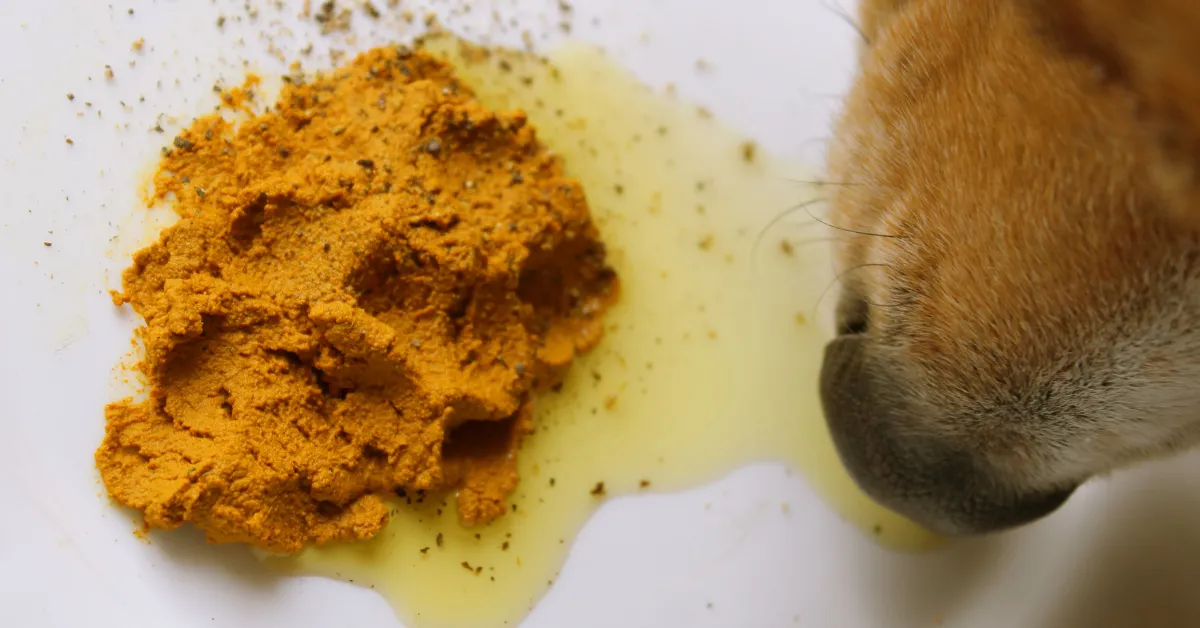

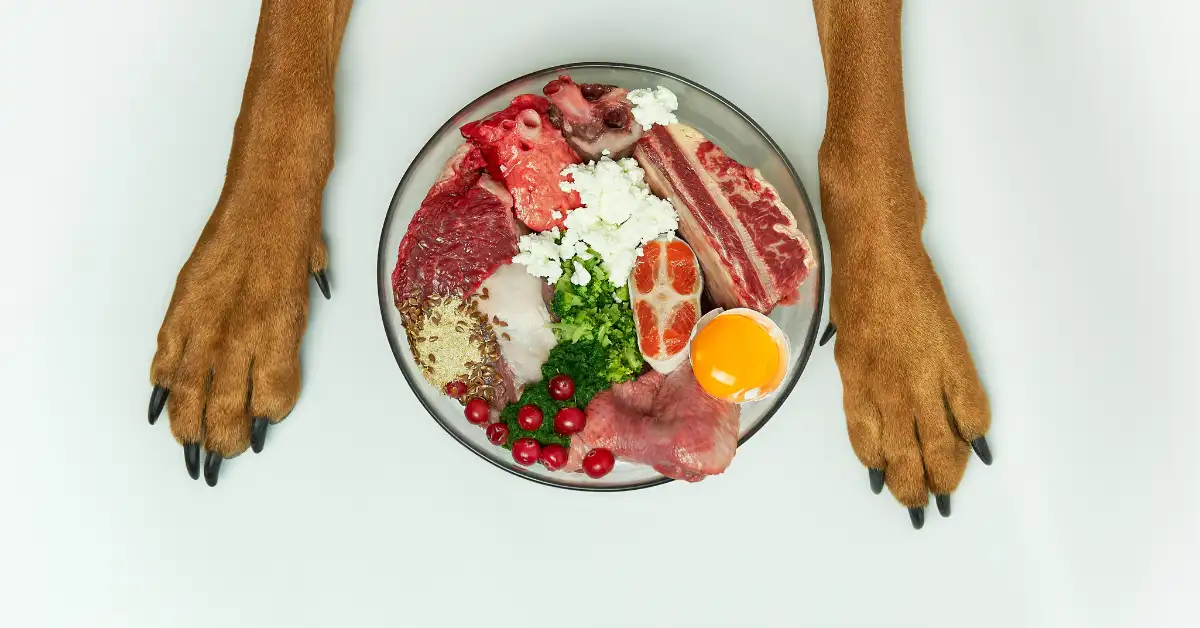



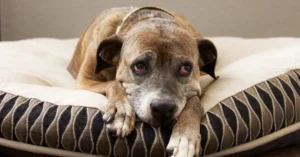
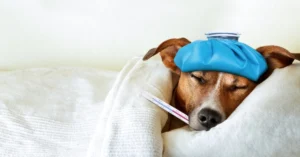
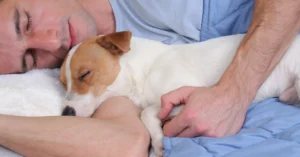
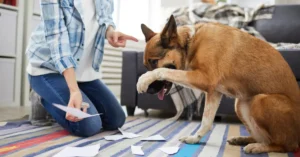

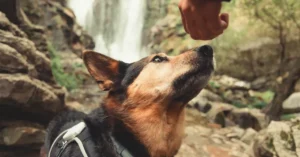
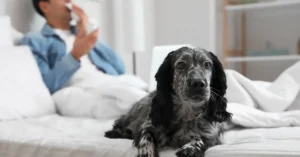
Post Comment